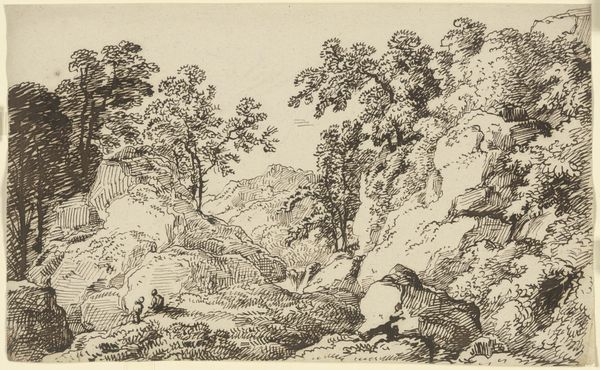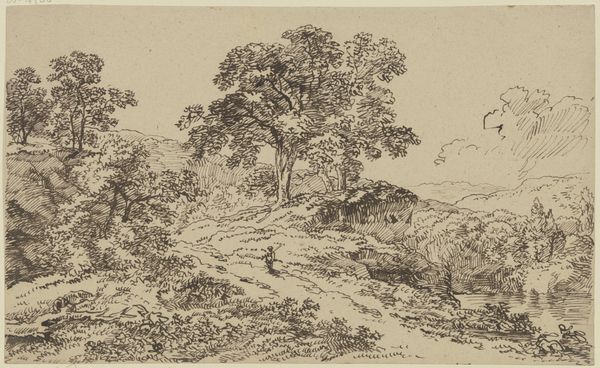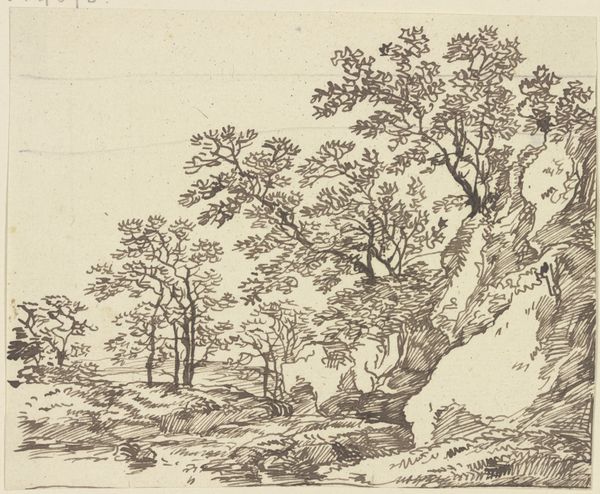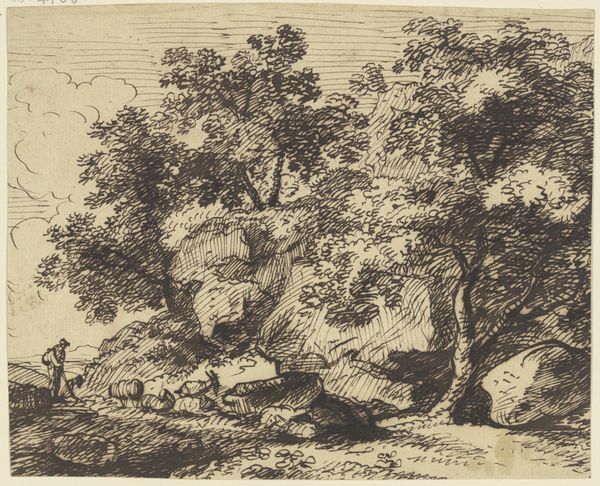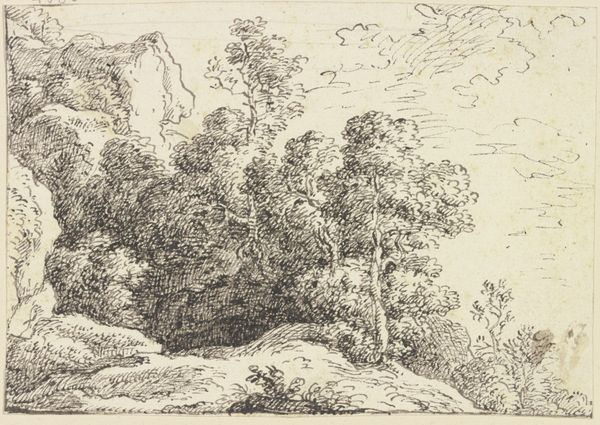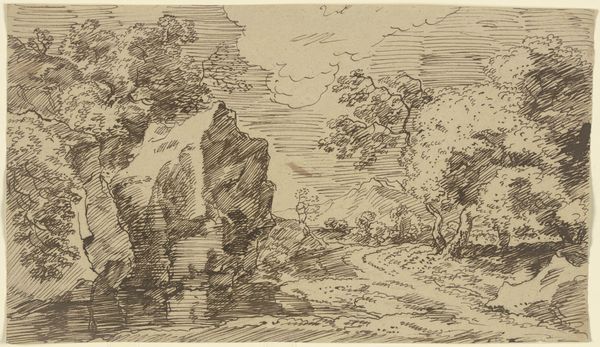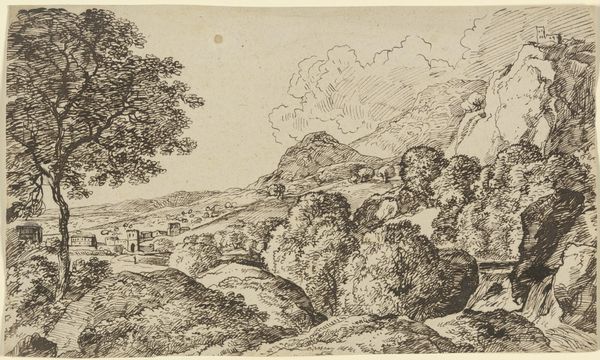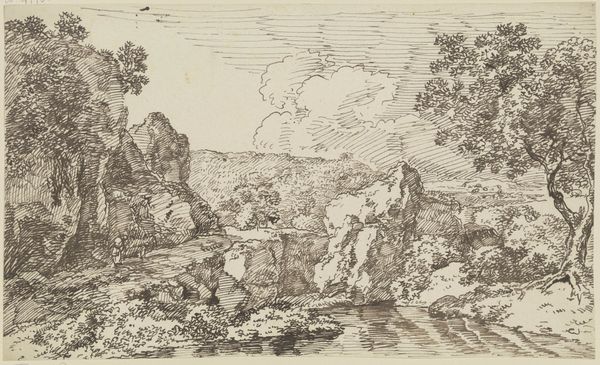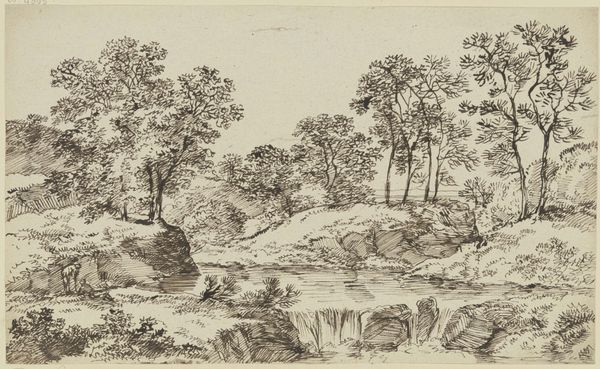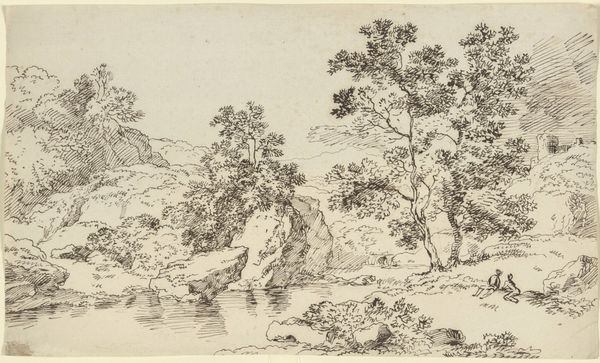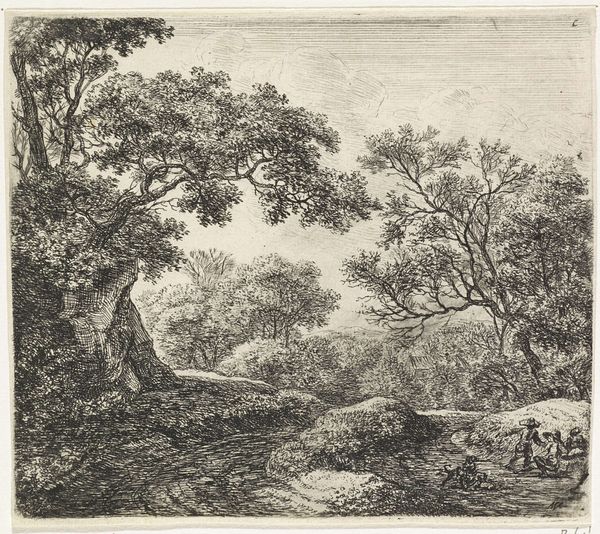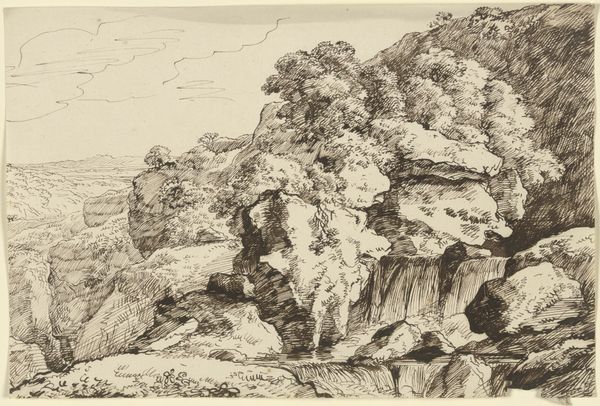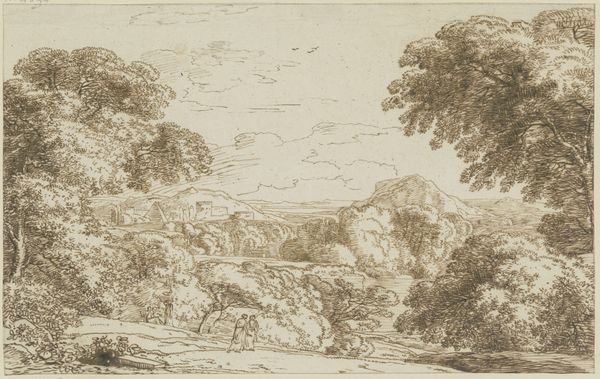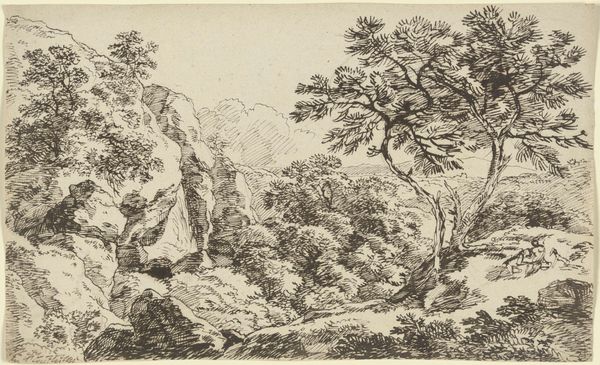
drawing, ink, pen
#
drawing
#
ink drawing
#
pen drawing
#
landscape
#
ink
#
line
#
pen
#
realism
Copyright: Public Domain
Editor: This is "Tree-lined ravine" by Franz Kobell, done with pen and ink. It feels so detailed for such a simple medium. The landscape almost feels tactile. What strikes you most about this drawing? Curator: The materiality here is everything. Consider the ink, readily available and relatively inexpensive even then, as a tool for both documentation and artistic expression. It challenges our ideas of preciousness in art, doesn't it? This drawing becomes about labor and accessibility. Editor: So you’re saying its value lies not just in the image itself, but in its accessibility of materials and process? Curator: Precisely! Look at the lines – economical, yet they meticulously render the landscape. What does that repetitive act of drawing, the sheer labor involved, tell you about Kobell’s relationship with the natural world, with his craft? How does it relate to societal structures, to patronage perhaps? Was he directly commissioned to make it, and does it tell us anything about who requested it? Editor: I hadn’t considered the economics of art-making. Does the availability of pen and ink at the time also hint at a democratisation of art? Curator: That’s an excellent point. With inexpensive, easily obtainable materials like ink and paper, more people would have had the means to create. Did this drawing emerge outside the formal Academy, perhaps circulating in a different kind of art market? How did that material context change or expand who had access to art, both as makers and consumers? Editor: I guess I've mostly thought about artistic skill or the aesthetic value but I'm realizing now there's a lot more than meets the eye if you start considering these elements. Thanks for pointing that out! Curator: My pleasure. By examining these overlooked facets, we start to grasp a more holistic picture of art's role in society and production.
Comments
No comments
Be the first to comment and join the conversation on the ultimate creative platform.
